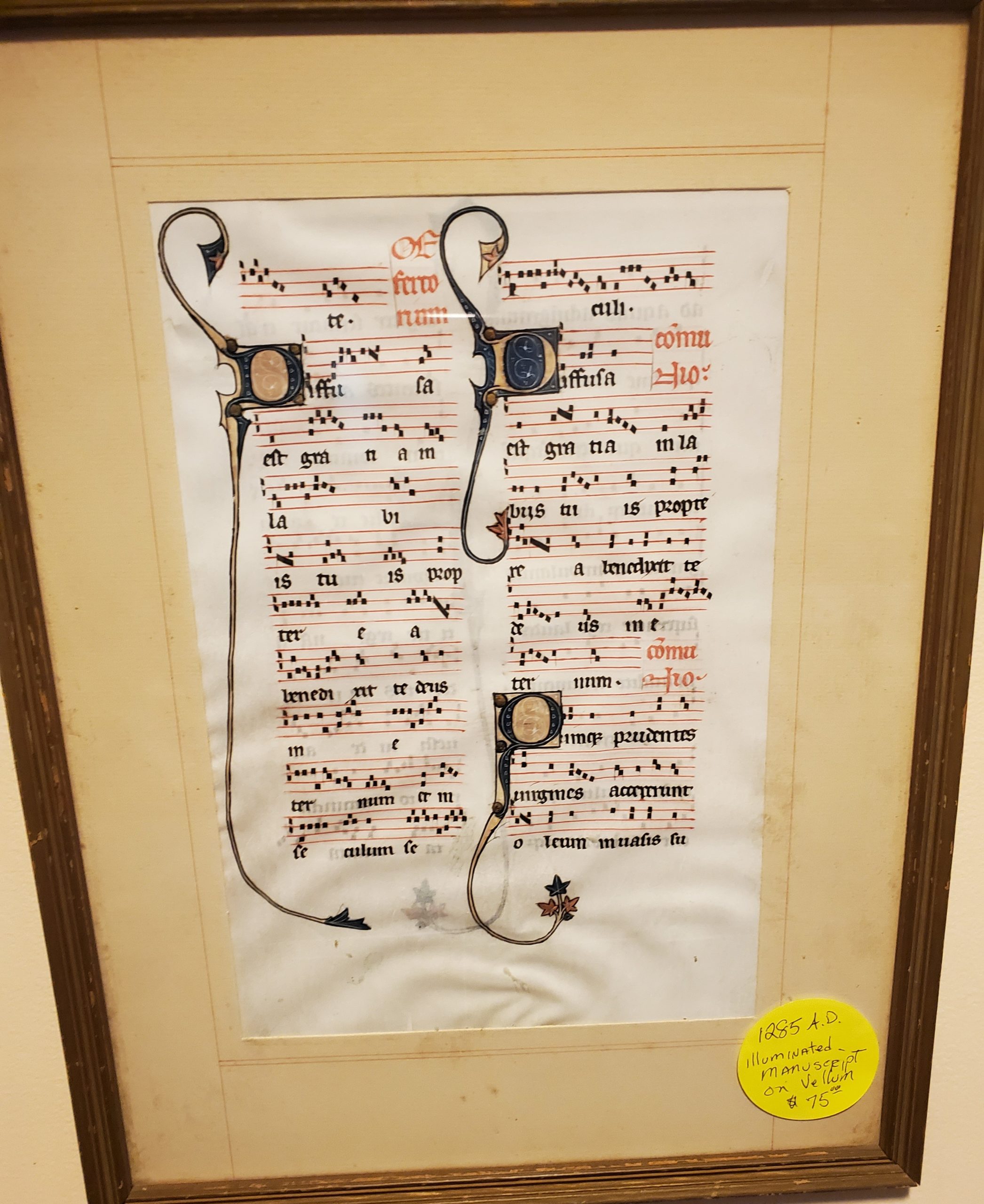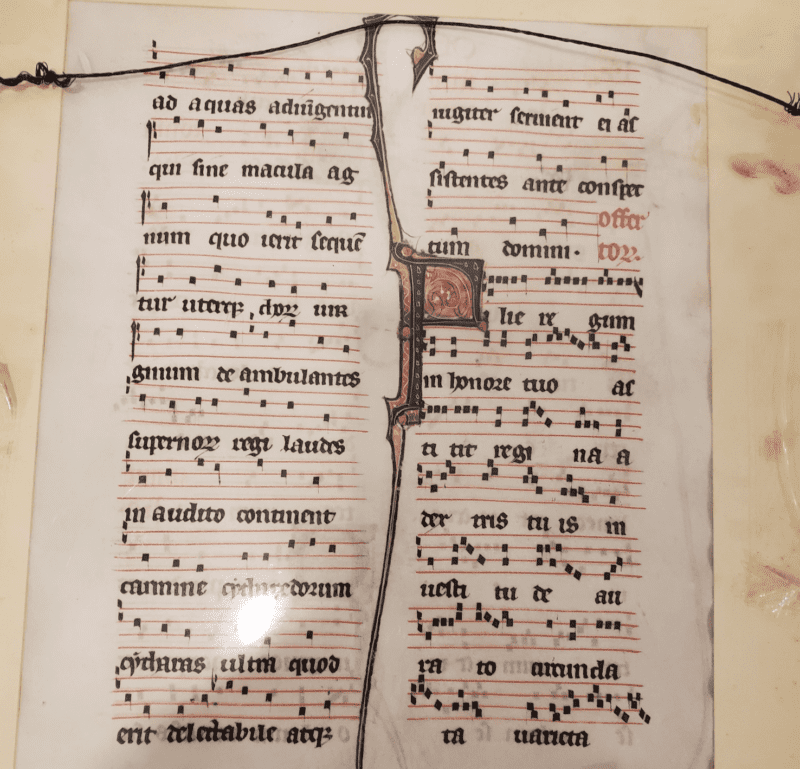Will Sideri went to an estate sale at a house on Pleasant Street in Waterville one Saturday this month on a whim. Maybe he’d find a cake mixer. He wants to bake.
But as the 24-year-old entered the dining room of the house, his eyes fixed on a framed page with elaborate Latin script, and musical notations in gold, blue and red script. It looked old, like the documents he learned about in a course on medieval manuscripts he took at Colby College a few years ago.

Scribbled on a yellow sticker was another clue: “1285 AD. Illuminated manuscript on vellum. $75.’’
Could it really be more than 700 years old? Sideri excitedly texted his former professor, Megan Cook, with a photo of the piece. “I have a question for you. I think this might be real,’’ he recalled telling Cook after coming upon the document on Saturday, Sept. 3.
“I said, ‘wow, that looks familiar,’ ’’ Cook recounted.
Then Sideri hustled home and got a check to pay for his find. Cook, meanwhile, sent the photo to a friend and fellow academic, Lisa Fagin Davis, who was at a University of Michigan football game. Davis tried to read the urgent text message but couldn’t open the photo because all the phone users in the 107,000-seat stadium had overloaded the circuits.
Within a few hours they determined that indeed, the estate sale discovery in Waterville appeared to be an authentic leaf from what’s known as The Beauvais Missal. The manuscript was written in or near Beauvais, France, in the later part of the 13th century.

Today’s value: between $5,000 to $10,000, according to Davis. “$75 is a RIDICULOUS price, really unheard of in recent memory,’’ she wrote in a Facebook message. “The dream!”
According to Davis, the intact missal was once owned by William Randolph Hearst, the businessman and newspaper publisher who sold it in 1942. To the great lament of today’s academics, art dealers began removing pages of the manuscript and selling individual leaves.
Davis, the executive director of the Medieval Academy of America, has been piecing together the scattered leaves of the missal for several years, and has written extensively about the sleuthing done by herself, other academics, collectors and dealers.
They’ve located individual leaves all over the U.S. — at other estate sales, old barns, basements and museums. So far, Davis has located 114 pages of the original 309. “This stuff just shows up at the craziest places,’’ she said.
The writing on the leaf, she said, is part of a prayer book used by a priest for a liturgy of that time period. This particular page was in the home of Colby’s former director of financial aid, who died this year, and was previously owned by a couple in Pennsylvania, according to annotations that came with the leaf and Davis’ research.
Sideri, who works at the Colby College admissions office, also brought the leaf to Colby, which has its own leaf from the same missal in its special collection. Cook posted images of the two side by side on Twitter; Sideri’s is in better shape.
I got to see @wsid30’s Beauvais Missal leaf yesterday, and we took it to visit its sister leaf in @ColbyCollege special collections. The Colby leaf has been conserved, but had environmental damage. Will’s leaf has been in that frame since the 1940s. Look how white the vellum is! pic.twitter.com/YHrLGCoJqr
— Megan L. Cook (@meganlcook@zirk.us) (@meganlcook) September 9, 2022
“They haven’t seen each other since 1942,’’ Davis said.
Where does this precious find go now? Sideris insists he will not sell it. He will probably bring it to his parents’ house and let them keep it. He doesn’t want it to get damaged if he moves. But maybe when he settles down, he’ll add it to his walls.
“I have something very vintage. Like 1285 vintage,’’ he said.
David Dahl is the editor of The Maine Monitor. Reach him with ideas for other stories: david@themainemonitor.org.





